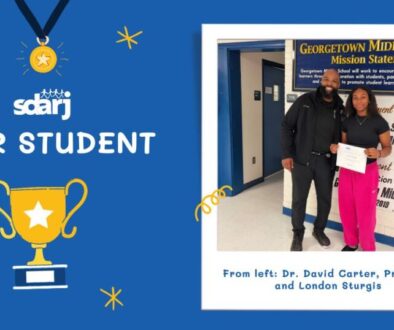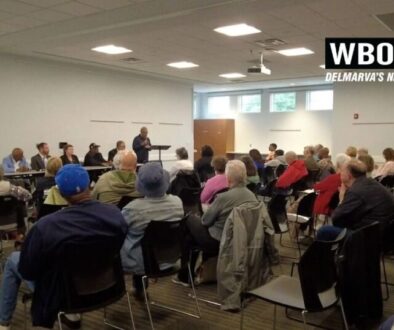Alliance Shifts Focus to Education
Dr. Aimee Wiest, instructor of African American literature at Delaware State and leader of the SDARJ book discussion group, gave a two-part presentation called “Zeroing in on Education,” at SDARJ’s July 11, 2017 monthly meeting. The presentation outlined some of the ways that individuals can develop a greater understanding of race in our community and our country as a whole.
In Part 1, Dr. Wiest spoke to Alliance members about the SDARJ Book Group, their past and upcoming book selections, and their importance in thinking and talking about race and continuing the SDARJ mission. The list of books covers a variety of subjects, providing a well-rounded picture of power and racism in American history, culture, and institutions. Upcoming SDARJ Book Group selections include:
August 22 – Chickens and Mosquitos: The Art of Uncertain Times by Carol Kelley Psaros
September 26 – Forever Free: The Story of Emancipation and Reconstruction by Eric Foner
October 24 – Democracy in Black: How Race Still Enslaves the American Soul by Eddie. S. Glaude, Jr.
November 28 – Discipline and Punish: The Birth of the Prison by Michel Foucault
December 12 – “Make a Difference” by The Twin Poets of Delaware
In Part II, Dr. Wiest presented a comprehensive syllabus for educating teens about African American literature, music, and history. It began with a musical selection, Swing Low Sweet Chariot, and Alliance members joined in chorus to sing along. In addition to spirituals, Dr. Wiest also discussed African American influence on modern day music, including jazz and the Blues, born from great musicians such as Louis Armstrong and BB King.
The syllabus also included excerpts from the works of literary legends Phyllis Wheatley, Jupiter Hammon, and Harriet Jacobs. Dr. Wiest read poetry selections from Langston Hughes and Paul Lawrence Dunbar, and named other must-reads authors such as Zora Neale Hurston, Maya Angelou, Toni Morrison, Ralph Ellison, Alice Walker, August Wilson, and Nikki Giovanni.
At the conclusion of the presentation, Dr. Wiest answered questions about the application of the syllabus, touching on how reactions to literature differ based one background and experience, and how attitudes shift throughout discussion, sometimes in major ways. She regarded these outcomes as both rewarding, and heartening.











